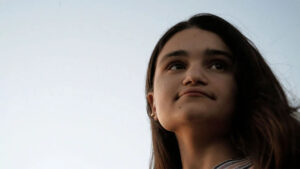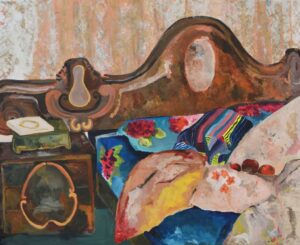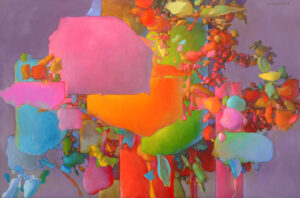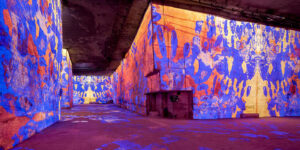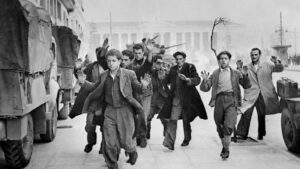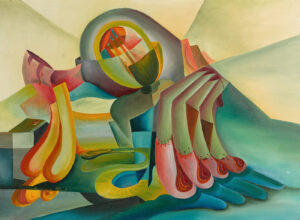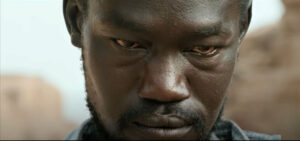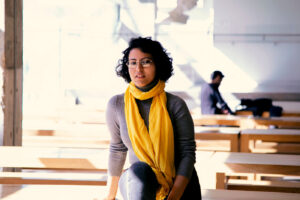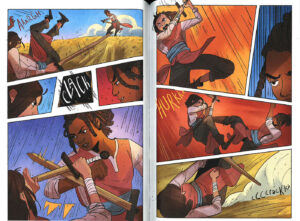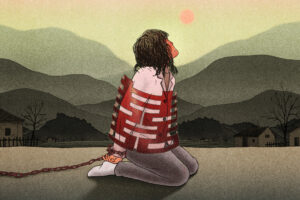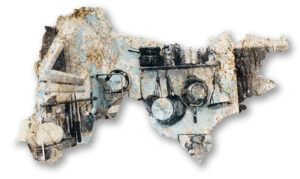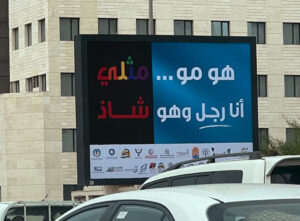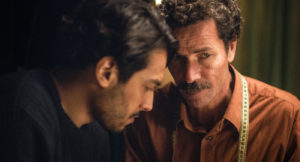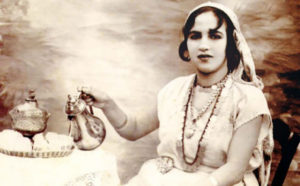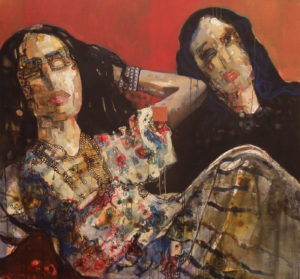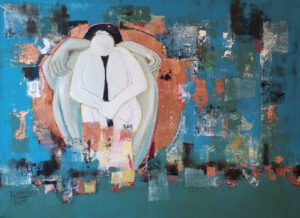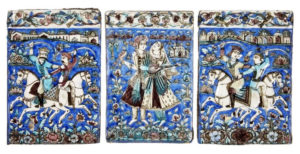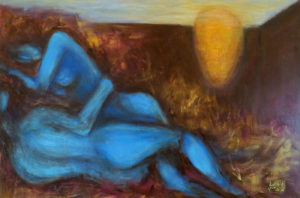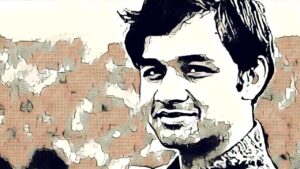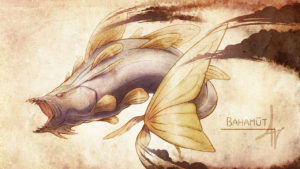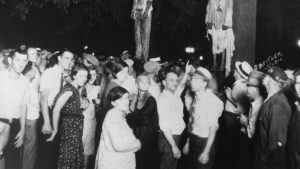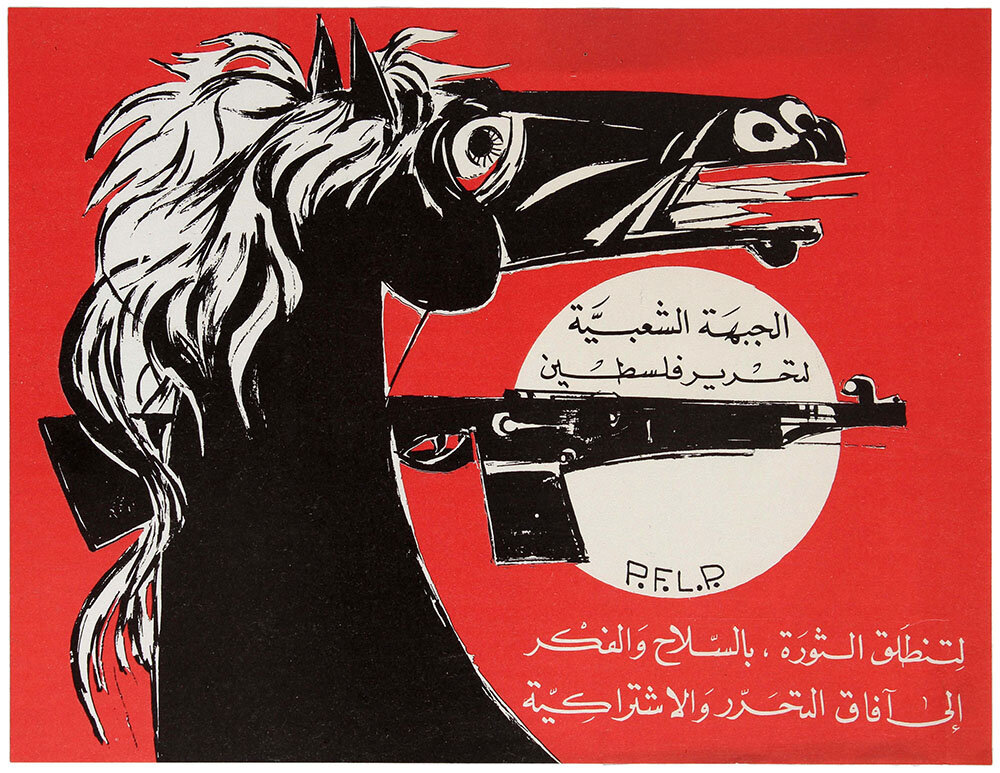
Spelling out the ABCs of the Palestinian Revolution to Come: The Case of Susan Abulhawa’s Against the Loveless World
Against the Loveless World, a novel by Susan Abulhawa
Atria Books (2021)
ISBN 9781982137038
Fouad Mami
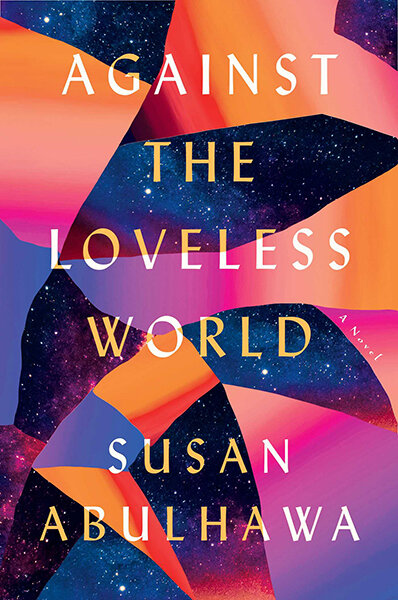
Against the Loveless World is Susan Abulhawa’s third novel. Her Mornings in Jenin (2010) and The Blue Between Sky and Water (2015) read as accelerators towards this third. Here, Abulhawa spells out the ABCs of the Palestinian revolution to come. Readers do not encounter the terror-stricken Yousef of the first novel, nor the psychologically-damaged Nur of the second. In this book, one cannot get enough of Nahr (river in Arabic) if only because she is a voluptuous dancer. Nahr is not a secondary character as with, for instance, Epic of Gilgamesh. Instead, Nahr stays le réacteur conceptual of revolutionary change, but — and this remains her distinguishing feature — she does not attribute any narcissist role to her own person. There are several instances where readers realize that Nahr is not even aware that her actions and inactions incarnate the revolution. As there exists no script from which to follow, it is her being that metamorphizes to essence and, that in turn, organically develops to a concept for the imagined revolution. Nahr embodies in absolute certainty the manner in which a revolution becomes irreversible. Only when the would-be revolutionary dances erotically does life itself become incendiary and all potential for social renewal emerges as a possibility.
Readers meet first Nahr incarcerated in the cube, a high-tech security facility that targets the detainees’ self-trust by impinging on them “…timeless, nontime…” (184), the ahistorical existence characteristic of mere subsistence. The cube stands for an ontological condition that involves zero agency and aims to impair that which the early nineteenth century German philosopher Georg Wilhelm Friedrich Hegel (1770-1831) calls “knowledge of the absolute.” The cube, both the literal and metaphorical, sets that structure aiming to deny access to certitudes; it instantiates the Orwellian concept of Big Brother who fantasizes about the quelling of all subversive thoughts. But whether or not the jailers succeed in their plans to eradicate thoughts of revolution remains uncertain, to say the least.
She narrates her exile from the beginning, in pre-1990 Kuwait City. A large Palestinian community is building the city. At nineteen, Nahr marries Mhammad (sic); the latter arrives in the city after a conditional release from Israeli prisons with presumably unmatched credentials as a revolutionary. That explains why he is a celebrity among Palestinian girls in Kuwait. Because he is a homosexual, Mhammad cannot reconcile with his strict gender expectations and painfully leaves Nahr. Her family’s main supporter, Nahr now takes various odd jobs until she meets Um Buraq in a wedding party. An Iraqi married to a disgruntled Kuwaiti, Um Buraq is enchanted with Nahr’s dancing and adds her to a team of prostitutes in an underground brothel for rich khaliji customers. The night Saddam Hussein invades Kuwait, Nahr and two other girls are entertaining sadistic Saudi emirs; under the influence of narcotics the latter turn out to be extremely abusive. With the Iraqi occupation underway, the emirs are summarily executed, showcasing poetic justice.
With the liberation of Kuwait, Palestinians become overnight personae non gratae in a country they helped build from the sands. Nahr’s family members find themselves starting over again in Amman, refugees who are thrice-removed from home in a single lifetime. Under the Oslo Accords of 1993, Nahr is finally convinced to visit the West Bank to terminate her divorce papers and, why not, remarry, that is, restart her life put on a standstill by Mhammad’s sudden disappearance. Mhammad’s bother, Bilal, facilitates the daunting procedures but slowly, Nahr becomes enmeshed in Bilal’s secret work flow. She discovers, never without a cost though, that on the surface of docility, underground groups from multiple Arab villages form autonomous resistance cells to Israeli occupation. By the time she earns these underground activists’ trust, Nahr becomes part of Bilal’s unit and helps organize several painful blows against nearby Israeli settlements. In consequence, she serves an 18-year prison term. This explains how readers encounter Nahr in the cube early in the novel. Exchanged in a swapping deal, readers meet her in closing in Amman. The proof of her self-confidence (knowledge of the absolute) staying intact and that the incarceration has been of little effect in shaking that trust is when she tracks Bilal, she resists the urge to reunite publicly as he still figures on Israel’s wanted list.
The novel’s world is far richer than the details of its plot. If Karl Marx’s call for communism, revolution, his disposition against the state and money or his historicist approach seem too abstract, Nahr’s choices facilitate the reception of what is intentionally tagged as superfluous abstractions. Through her actions and choices, Nahr explains communism better than the finest professor in the finest institution. To begin with, the choice of the name, Nahr, very likely reads as a tribute to Rosa Luxemburg, the radical Polish-German communist and co-founder of the anti-war Spartacus League who was killed and whose body was thrown in Berlin’s river (Landwehr Canal) following the abortion of her movement at the end of the World War I. Through Nahr, Abulhawa chooses to capitalize on Luxemburg’s splendid legacy as a martyr of another revolution from another time where other wretched-of-the-earth built a barricade and challenged, however briefly, capitalist aggression. When bourgeois press bombastically declared that “Order Prevails in Berlin” in early January 1919, Luxemburg repacked the exact words to title her last article ever in order to announce: “I was, I am, I shall be!” It is a statement that directly speaks and resonates with Nahr’s overall experience.
“…they slowly learn to make love because they engage in the revolution. And they engage in the revolution because they make love. The fusion of their two bodies is never an arithmetic addition of one plus one equals two. Instead, it is an addition that taps into the infinite because it breaks all enclosures and all alienations, opening the way for universal emancipation.”
With that rich communard background, Nahr embodies Marx’s Gattungwesen, the life of men and women free from alienation. She incarnates the ontological vibration of the primordial tradition predominant before the Neolithic Revolution. Readers discover that the communism of the future that Marx prophesies can be no different than the way Nahr, Bilal, Samar, Jumana, Ghassan, Wadee and Faisal (the small revolutionary cell) live with or without occupation over them. Before resorting to the armed struggle, they are categorically clear that the revolution is the way they challenge their society’s sedimented gender roles and arbitrary sanctions of morality. Bilal facilitates her self-acceptance, driving her out from the closed space, that which alternatively would remain a fixation on an unkind past of whoredom. Eventually, they slowly learn to make love because they engage in the revolution. And they engage in the revolution because they make love. The fusion of their two bodies is never an arithmetic addition of one plus one equals two. Instead, it is an addition that taps into the infinite because it breaks all enclosures and all alienations, opening the way for universal emancipation. That fusion underlines a radical luminosity of their respective bodies, allowing the simultaneous unleashing of love and revolution effortlessly. That fusion zooms in on the exact and logical chain reaction from the commonsensical dictum, trivialized under capitalism to signify a non-engaging adage, “I love you.” Precisely, Bilal and Nahr’s type of fusion seeks to recover the buried radical history in the etymology of the word ‘love’ signifying: growing up or expanding. Being the primary form of the divine, ‘my love’ cannot be different from the essence of ‘my essentiality’, the door to ‘my universal’ history and the only element that guarantees ‘my verticality’. Therefore, ‘my love’ translates the auto-movement of the world, the locomotive which drives history. Other than outlining substance or incarnation of being, love also directs the lover for his or her destiny.
Interestingly still, Nahr and Bilal’s group’s anti-statist logic does not waver before either Israel, the Palestinian Authority, Jordan or Kuwait. Any state, they find, is the codification of reification ending in a pornocracy, that is, in a life of perpetual horizontality. Before it is a feat in metallic-and-concrete engineering, the cube is one mode of production imposed without an open discussion over qualitatively better modes of production. And Nahr has repeatedly tasted state logics first hand. She notes how it corrupts human exchanges and stands behind the ghettoization into fratricidal faiths and warring nations.
With the liberation of Kuwait, the state failed to reboot the banking system, and in order to withdraw any sum from her own account, Nahr has the “choice” to either wait in line for impossibly long queues or prostitute herself. With coercion this acute, readers seize the sense of how much of a choice she is left with. She needs to quickly procure large sums to fend off eviction from her place and palm oil corrupt state officials in order to release her brother Jehad from an arbitrary arrest and torture. This explains how she approaches an ex-customer Abu Moathe. Noting Nahr’s vulnerability, he rapes her with impunity nowhere but in his office, adding salt to injury by bellowing: “This is what Palestinians are good for. Cheap labor and cheap whores. We buy and sell people like you here.” (100) The ‘We’ here is the immanent logic of the state. Nahr has been reminded by human right agents and lawyers that the authorities know her brother is innocent, but bribing them is the only law that guarantees his release. Still, here lies the element that crystalizes the readers’ understanding that any state by default, not by accident, feasts on the weak and thrives on prostituting them.
Interestingly though is how during the short window spacing the Iraqi occupation and American “liberation” (August 1990-January 1991), Nahr witnesses first-hand how money is a commodity fetishism, the gate to exploitation and to freezing frigidity in human relations. Through Nahr’s experience readers realize that people cannot own money. Instead, it is money that owns humans, spelling out the fact that humans are increasingly becoming impotent, a mass of walking dead or thanatos. Readers find that the televangelist Abu Nasser insists on visiting Nahr during her periods just to sniff her filthy panties. Filthier panties translate to better pay! (59) Soon when he is done with his gratification, he starts crying, berating Nahr for tempting him! Similarly, Abu Moathe, the bank branch manager, cannot have his sadistic stimulation without acting rape scenes with screams and bruises all over Nahr’s body. (60) Varying between the depressive and the sadistic, Nahr notes that the two pillars of capitalism visiting her bed are numbed to basic concepts, barred from elemental human feelings such as tenderness and love. They are not only momentarily incapable but forever blocked from experiencing genuine love, explaining why they are perverts. Driven by the delusion that their money entitles them to as much love as they fancy, they overlook the commodification of their life, ushered in by placing a price tag on that which is priceless. Hence, how they never access true joy or émerveillement. Money only helps the likes of Abu Nasser and Abu Moathe agitate to merely fill in the emptiness of their solitudes.
Contrast this situation with the way in which Nahr and Bilal make love. When no money is involved, love is never an addition of two solitudes seeking to distress. Rather, it is a substance incarnated, a multiplication whose limit is the sky, hence how they both subscribe to the revolution. Bilal and Nahr show readers that the act of love is not only the human species’ gift but also their destiny, one which can never be processed by the law of value. And while that law has degenerated literally all spaces and temporalities, it still can never vitiate love, provided that love is true. Love, thus, becomes a terrible force of resistance, and that is why money drains humans’ destiny for universality. Thus, it becomes evident that capital aims at dissolving love in order to control and enslave humans. Revolutionary work is thus a story of love; for when Jenny died, Marx followed soon. Abulhawa’s audiences may want to recall that scene in Titanic (1997) where Jack Dawson declares to Rose DeWitt Bukater: “You jump, I jump”, a statement that evolves into a dictum. For in the absence of my beloved, I cannot see the point from me carrying out living. That is how love finds its incarnation in opposing thanatos, or dead labor, domination and the vampirization of human relations to the law of value.
Now with inflation escalating like wildfire, most memorably, during the Iraqi invasion, all residents of Kuwait reclaim communism almost in a reboot mode. That brief experience undid the ghettoization into Kuwaitis, Iraqis and Palestinians. Readers find “Despite the uncertainty, people socialized without the weight of financial responsibilities. … No one was poor. No one was rich. We just were. And we shared. We ate. We drank. We laughed. We danced. We cried. We dreamed and imagined a better world.” (88) The wretched of the earth learnt that in the absence of both a state and money, human relationships just blossom. The combination of incertitude and fear from an uncertain tomorrow leaves all people in the same boat, turning the senseless accumulation of capital into an anachronistic perversion. Therefore, the first step toward any struggle against slavery has to start with abolishing the state and money. Again, even when Nahr does not articulate it explicitly in this way, she still gives the reader enough food for thought to examine how the division of labor corroborates into the institutionalization of money (via a state) as the only mode of exchange, masking the enslaving logic thereof, the one that keeps servitude intact, even when enslavers change. The number of hardships and coercions Nahr endured after the liberation of Kuwait stands as a glaring reminder that money is but a fetish.
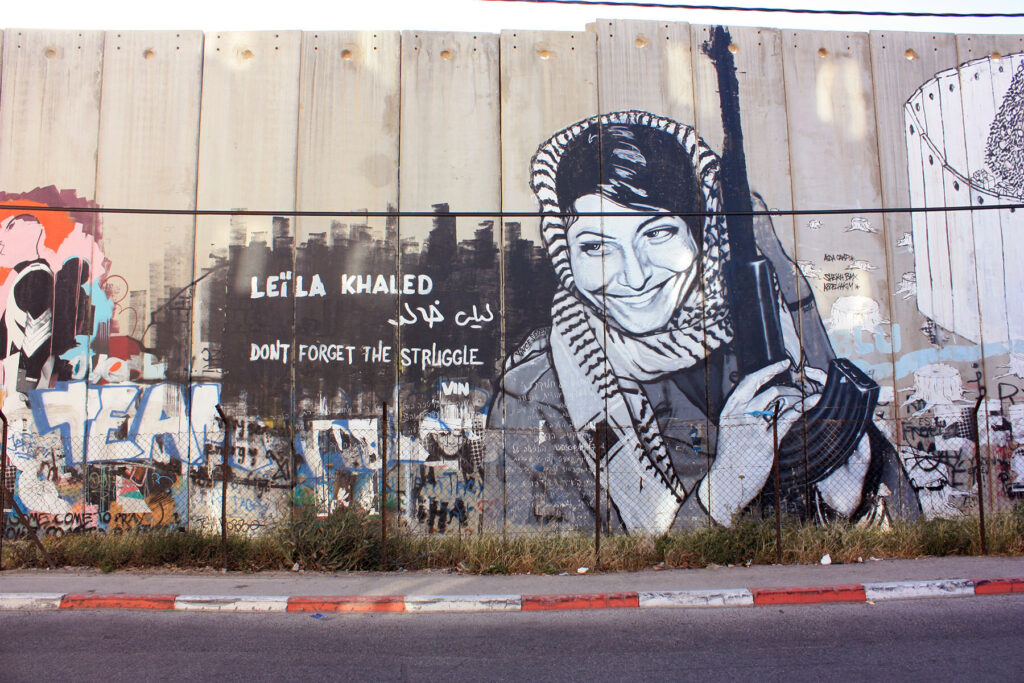
Equally important in Against a Loveless World is its preoccupation with how revolution, that incendiary logos, emerges. Readers note that Nahr was not particularly smart at school, while her brother Jehad was. Still in the camp of alienation then, she invests heavily in her brother’s education by putting money aside to fund his graduate studies, hoping against hope he would become a surgeon or a pilot and thus will one day lift the family from the dregs of black misery. All such plans — the ones readers too take for granted — went to naught as circumstances proved that selfish plans for lifting misery not only miserably fail but are ideologically imposed to divert attention from the true evil. The story smoothly leads its audiences to realize that either one has to enlist in a larger scheme for lifting misery or remains forever condemned to a generalized pornocracy. Indeed, that failure of Nahr’s initial plan to give Jehad the education she thinks he deserves makes perfect historical sense when given the Hegelian stance against intellectuals and their presumed mission or capacity to play their “expected” role as vanguards and awakeners of the multitudes. Alternatively, those who carry out revolutionary work, according to the novel’s immanent logic, are precisely those who are not brainwashed or whose logos has not been drained by formal education. Differently put, revolutionary work is never a cerebral undertaking; it is rather a bodily passion. That explains why revolutionary work remains under the dictatorship of the law of value an inexplainable mystery. For “…wretchedness cannot be conquered by the individual through intellectual means,” (Engels 1847, 62) Genuine revolutionaries simply cannot be otherwise. They just emerge from the most disenfranchised sections, the most abused and the least susceptible to sedition. As a phenomenon, revolutionaries subscribe to the Hegelian axiom underlying that essence always stands at odds with appearance. Seizing this understanding remains troublesome, in the Arab world and beyond. The predominate line is the culturalists’ where in order for a revolution to emerge people need first and foremost a mental leap, a radical break or une coupure épsitémologique with so-called outmoded practices and habits. But if she has bitterly teased her Israeli jailers, it is precisely in consequence of the fact that Nahr is not even aware that she is a revolutionary, never because she decided to wake up one morning and effect a break from whatever past. Bilal confides: “You, more than any one of us, are a revolutionary, and the irony is that you don’t even see it.” (186)
All in all, the proof for Nahr’s revolutionary approach becoming self-evident for all to seize transpires the instant she stopped shying away from her past as a prostitute. Still, not shying is in never equivalent to brandishing that past. Rather, it is in spite of that past, perfectly understandable with the logic of undesirable refugees (cheap labor) in the Gulf, that she was able to reflect back on her condition, a reflection that announces her agency as a historical subject. Seizing the capacity for reflection marks the emergence of a radical consciousness, the one that actively seeks to reverse the collective misfortune. Her incendiary logos recalls the Christian concept of la femme adultère or the adulteress who came under Christ’s protection from judgmental and degenerate Jews. Only via Nahr’s prostitution, readers learn to crystalize the initial sense-certainty that if they standby watching or judging or both, they can only qualify as counterrevolutionaries no matter how much they think grandiosely of themselves. She surprises members of the cell by disclosing: “What’s truly revolutionary in this world is to relinquish the belief that you have a right to an opinion about who another person chooses to fuck and why.” (182) Here is a feat of theoretical genius where Abulhawa redefines the revolution — the concept — to signify abstaining from feeling good about oneself by proselyting virtue outside of space and time.
In closing, Nahr forces comparisons with both Zoulikha Bent Chaib in Assia Djebar’s La femme sans sépulture (1976) and Hajj Khaled in Ibrahim Nasrallah’s Time of White Horses (2017). All three have been coerced by prostitution in one form or another and emerge triumphant thanks to their revolutionary stance. However, hatred for opponents fails to motivate these three. Unsurprisingly and almost as with Sufis, they lack personal enemies. With the three, readers attune their life force to the ancestral breath of the hunter-gatherer. As Nahr admires the curves shaping her breasts, torso and hips (reveling in her Dasein), readers may not overlook the parallel of those curves with the hunter’s arch. Both activate the same sacral (not sacred) breath. In hitting the prey, the hunter seeks sustenance, not profit. Readers close Against the Loveless World ever convinced that a loveless life is not worth living. This sentence should be read dialectically, that is, in connection with how Abulhawa challenges Socrates’ maxim of a thoughtless life is not worth living, placing emphasis on the body instead of the mind in prioritizing revolutionary work. Ever more concretely, bibliophiles cannot miss the author’s insight that whoever cannot dance cannot even begin qualifying as a revolutionary.




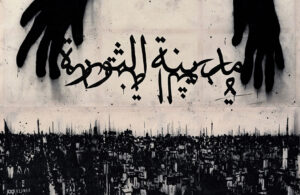




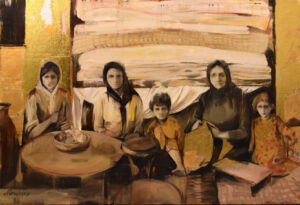

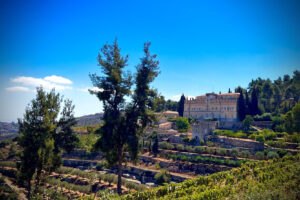










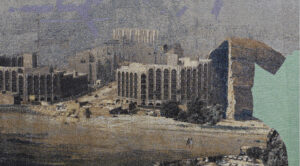
































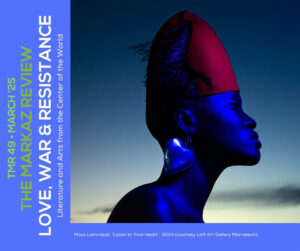


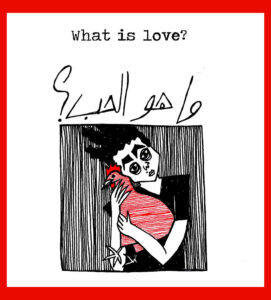













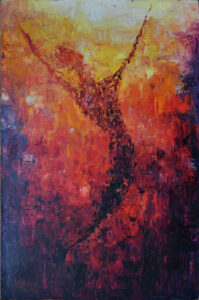


















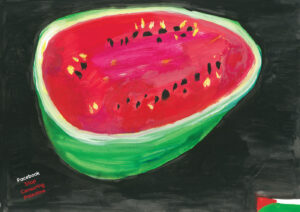






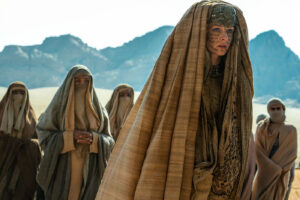
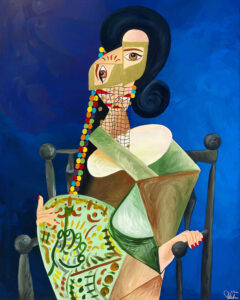
















![Fady Joudah’s <em>[…]</em> Dares Us to Listen to Palestinian Words—and Silences](https://themarkaz.org/wp-content/uploads/2024/03/SAMAH-SHIHADI-DAIR-AL-QASSI-charcoal-on-paper-100x60-cm-2023-courtesy-Tabari-Artspace-300x180.jpg)

